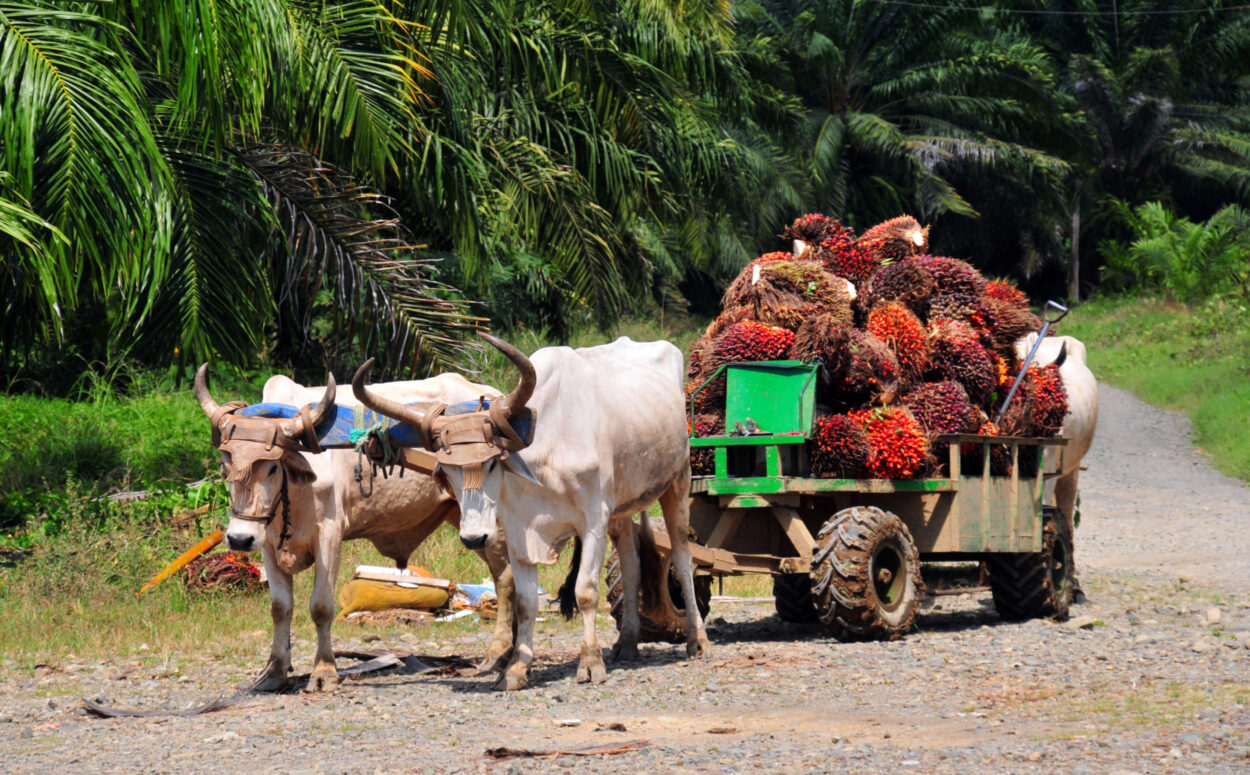
In today’s interconnected world, few commodities hold as much sway over the global economy as palm oil. This versatile and widely used oil plays a vital role across multiple industries from foodstuffs and cosmetics through to biodiesel. As a result, global demand for palm oil has increased exponentially over the past several decades.
The global palm oil industry has risen to meet the challenge of increased demand. It has also, in recent years, tackled sustainability head on. When developed on low-carbon stock lands, palm oil produces lower emissions factor than comparative oil crops. Furthermore, preventing expansion on forest and peat land, banning burning for land clearance, and using methane capture technology at mills, reduces the life- cycle emissions of palm oil by 42%.
Research on Roundtable on Sustainable Palm Oil (RSPO)-certified plantations puts the lifecycle CO2e emissions of palm oil at 3,4kg/kg, i.e., lower than sunflower or soybean.
Palm oil is extensively used in the food industry, found in everything from baked goods, spreads, and snacks to ice cream and instant noodles. It is also a common component in cosmetics, soaps, detergents, and personal care products due to its versatility and stability. Its unique properties make it a preferred choice for manufacturers across the globe.
Palm oil’s high resistance to oxidation means that it doesn’t easily spoil or become rancid when exposed to air, heat, or light. This means that it has a long shelf life and is suitable for high-temperature cooking processes.
Global demand for renewable energy has led to an increased interest in biodiesel, and palm oil plays a crucial role in its production. Palm oil is one of the most efficient vegetable oil feedstocks for biodiesel production, offering higher yields and energy efficiency compared to alternatives. Its use in the biofuel industry helps reduce reliance on fossil fuels.
Considering palm oil’s widespread use, banning or limiting its production and trade would have significant ramifications for the global economy.
In terms of annual production, the global oil palm industry is worth about US$ 60 billion, employing 6 million people directly, plus an additional 11 million indirectly.

Palm oil is a major global commodity, with leading producers including Indonesia and Malaysia. According to the Food and Agriculture Organization (FAO), palm oil accounted for 35% of global vegetable oil production in 2017. Any ban would disrupt international trade flows, affecting not only palm oil-producing nations but also importers and exporters worldwide. This could lead to a decline in economic growth and hinder the stability of global supply chains.
Beyond its culinary and industrial uses, red palm oil has deep spiritual significance in West Africa, where it originated. In traditional religious practice it is considered sacred and powerful and is used in rituals as a symbol of purity, protection and prosperity and to ward off evil spirits and negative energies. This gives palm oil meaning far beyond the merely commercial.
Addressing the environmental challenges associated with palm oil production is crucial. Initiatives like the Roundtable on Sustainable Palm Oil (RSPO) have been established to promote sustainable practices in the industry and, alongside country-specific initiatives like the Malaysian Sustainable Palm Oil (MSPO) and the Indonesian Sustainable Palm Oil (ISPO) certification schemes, have secured the future of the palm oil industry in Malaysia and Indonesia, the world’s two largest producers. By encouraging the adoption of sustainable cultivation and production methods, the negative environmental impacts can largely be mitigated while preserving the economic benefits.
Palm oil’s far-reaching influence on the global economy cannot be understated. Its versatile applications across various industries, including food, cosmetics, and biodiesel, make it a crucial commodity. Banning palm oil production would have profound consequences, threatening jobs, trade, and economic stability worldwide.
Instead, the focus should be on sustainable practices and certifications to ensure responsible palm oil production, striking a balance between economic growth and environmental preservation.